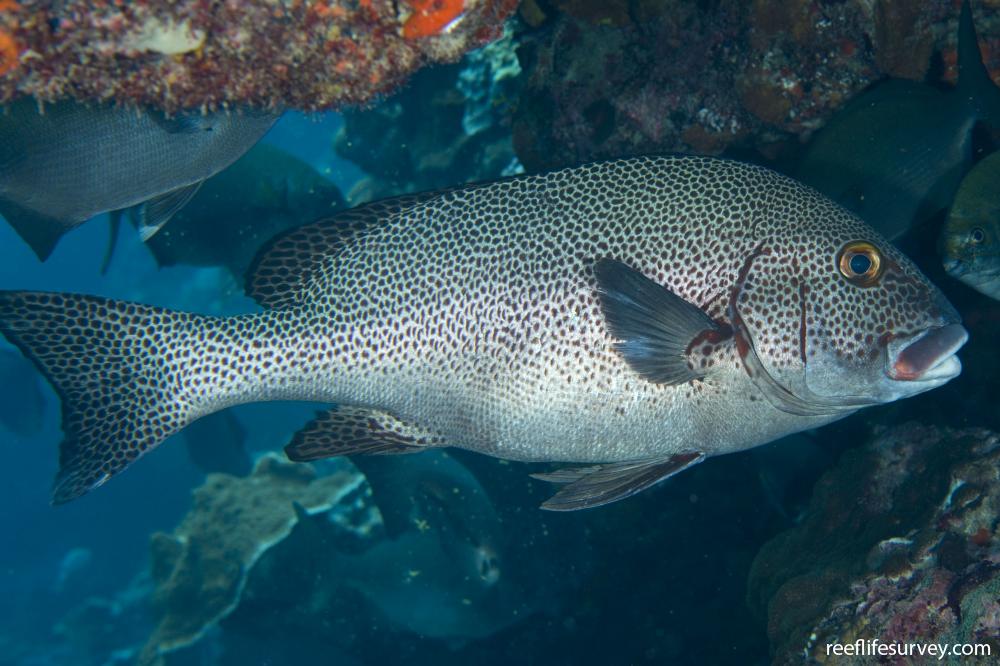Plectorhinchus picus
Magpie sweetlips | Black And White Sweetlips | Dotted Sweetlips | Painted Sweetlips | Spotted Sweetlips | Spotted Thicklip | Plectorhynchus picusSimilar Species
Same Genus
Distribution
Temperate Australasia, Tropical Indo-Pacific
Description
Fine red/brown spots over body and fins, dark bar along upper edge of operculum, and yellow on upper eye. Juvenile with white belly, black upper body, two neat, large white saddles, white snout, and spotted rear fins. Dark bar on rear of operculum distinguishes it from other spotted sweetlips P. flavomaculatus (Goldspotted Sweetlips), which also has gold spots, and P. chaetodontoides (Spotted Sweetlips), which has black spots.
Information
Max Size: 84 cm
Sea Temperature Range: 19.1-29.9°C
Depth: 3-50m
Habitat Generalization Index: 16.77
Also referred to as the SGI (Species Generalisation Index), this describes the habitat niche breadth of the species. Species with values less than 15 are found in a relatively narrow range of reef habitat types (specialists), while those over 25 may be found on most hard substrates within their range (generalists). Learn more here.
Conservation and Rarity
IUCN Status: Not Evaluated
Occurrence: Infrequent (8.0% of sites)
Occurrence describes how often the species is found on surveys within its distribution. It is calculated as the % of reef sites surveyed by RLS divers across all the ecoregions in which the species has been observed
Abundance: Few (2 per transect)
Abundance is calculated as the average number of individuals recorded per RLS transect, where present.
Edit by: RD Stuart-Smith, GJ Edgar, AJ Green, IV Shaw. 2015. Tropical Marine Fishes of Australia. Reed New Holland




























